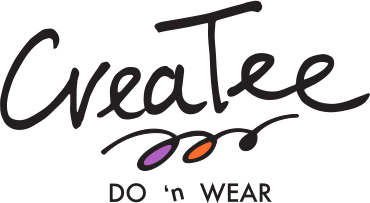
There are many different experiences that can constitute childhood trauma. Physical, verbal or sexual abuse can be clearly be traumatic for children. Events like a car accident, natural disaster (like a hurricane), or medical trauma can also undoubtedly take a psychological toll on a child. Ongoing stress, such as living in a dangerous neighborhood or being the victim of bullying, loss of one or both parents, can be traumatic, even if it just feels like daily life to an adult.
Childhood trauma doesn’t have to occur directly to the child. Watching a loved one suffer can be extremely traumatic as well. Exposure to violence in whatever shape or form can also be traumatizing.
In short whatever that makes a child/person feel emotionally, physically, mentally unsave , threatened, is a form of trauma.Early intervention is important to prevent the child from experiencing the ongoing effects of the trauma as an adult
Some of the most frequent and well-known psychological and emotional symptoms of trauma include:
- Depression
- Anxiety
- Anger/aggression
- Dissociative behaviors
- Confusion, shock, and denial
- Guilt and shame
This can carry far into adulthood and is very insidious . How can cultivating emotional intelligence be part of the solution in healing and rising above those childhood trauma? Having a good emotional intelligence enables you to thrive as a child and grow into a better functioning adult.
Emotional Intelligence builds a sense of awareness.
One of the pillars of emotional intelligence is essentially checking in and being aware of your own personal actions and reactions. That in itself makes you look deep and know what you need to look at. It is a good beginning to healing.
Emotional Intelligence builds the foundation of problem solving
As humans we can choose to be the victim ,dwell in it or choose a different path that is more uplifting . Having emotional intelligence gives you that tool to enable you to dream. To see a different path. You may not have the full answer at that moment, but at the same time, you are able to see the bigger picture. That brings you hope and joy. To do better and be better. That is the beginning of healing.
Emotional Intelligence encourages empathy and forgiveness
It has to be reminded that forgiveness does not mean that what was done to you was acceptable, alright and that you’re “wrong” or whatever that happened...did not. It just means that you are not going to be (the proverbial) drinking the poison that is only in the long run be the one killing you. It is not and was never your doing or fault. You just let go.
Emotional intelligence opens up your perspective. “ Hurt people hurt”, as it were. There is no real blame. You understand, accept and forgive where the other person is coming from.You are able to process the feelings of being wronged ,from a whole different viewpoint, perhaps even a healthier perspective for your own mental well being.Again ,it is not an excuse for the perpetrator, it is more for your own healing.
Emotional Intelligence gets you to take accountability
When you have awareness, you realize that things aren’t always black and white. Not everything is wrong. Not everything is right . Sometimes you have to recognize the part you play in the current situation. Not putting blame , but recognizing where you can do better.
Take bullying for example. Bullies bully the people that are susceptible to it. Bullies are basically people with low self esteem. Would there be any doubt that they would more likely than not, be “attracted” to preying on other kids that they know deep down have low esteem or people pleasing behavior themselves? Maybe not consciously, but as the saying goes “It takes one to know one”.
So knowing the part you have unconsciously played in the scenario, makes you take that accountability of your own personal behavior and actions. You probably lessen that anger too.
Emotional Intelligence gives you to ability to express things appropriately
Having emotional intelligence gives you the skills and tools to express yourself in a positive and appropriate way. You have the good sense to effectively express your thoughts and feelings. It might even be through creative avenues.
Those are some of the reasons why having emotional intelligence is a huge part to healing childhood trauma. What are your thoughts? What would you like to add to the list? Comment down below. As always,we look forward to hearing from you and having a good conversation going.
Photo by Andrea Piacquadio from Pexels
